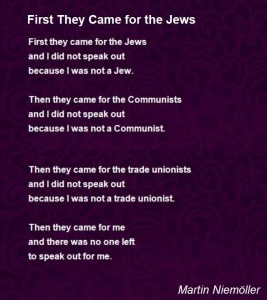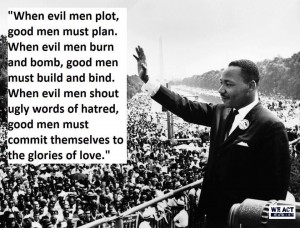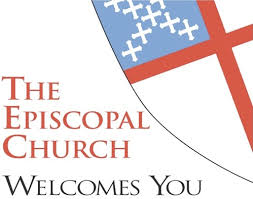Sermon preached at Trinity Episcopal Church, Mission, on the 2nd Sunday in Lent on the Rosebud Indian Reservation, South Dakota.
4 Epiphany C: God’s love is for everybody …
4 Advent: Ordinary people (just like us) doing extraordinary things for God
3 Advent: Lessons from kindergarten … for the whole world
2 Advent: How do WE prepare the way …?
Opening Our Eyes to the Way of Love
My sermon today, 28 October 2018, on Mark 10:46-52, in the wake of the atrocities of pipe bombs in the mail, two people killed in a grocery store because the shooter couldn’t get into a church, and 11 killed in the Tree of Life Synagogue in Pittsburgh.
We are numb. We are afraid. We are grieved. But we need to listen to the lesson of Blind Bartimaeus.
The text of this sermon is posted below the recording.
I pray my words are helpful in some way.
Preached on the Rosebud Episcopal Mission (West)
 In this morning’s Gospel, we hear Jesus’ clarion call to open our eyes and follow Jesus on the Way.
In this morning’s Gospel, we hear Jesus’ clarion call to open our eyes and follow Jesus on the Way.
We hear the story of Bartimaeus, the blind beggar who, even though he is blind, shouts for all to hear that Jesus is the Son of David, and asks for mercy. Those who know him – who know that he has been a blind beggar for years (but not his entire life) – tell him to hush up, but he won’t be silenced.
Bartimaeus might not have sight, but he has insight – the knowledge that Jesus, this itinerant preacher from Nazareth is no ordinary preacher, no ordinary teacher. Bartimaeus knows that Jesus is the one who can open his eyes and give him his sight back.
Because of his faith, Jesus does restores Bartimaeus’ sight. His eyes are opened, and he followed Jesus as a result.
If – if – we are going to follow Jesus, we, like Bartimaeus, need to have our own eyes opened.
Not because we are physically blind, as he was.
But because we are far too blind to all that is going on around us.
Unlike Bartimaeus, we – and by that, I mean all of us in this country right now, not just those of us who are sitting in church right now – we as a nation are not seeing the injustice, the hatred, the stubbornness that is taking over our country.
Look at what has been going on this week alone:
- Fourteen people threatened by bombs mailed to them by a man who simply cannot abide by those people who disagree with him. Fourteen bombs were mailed – to people from the opposite political party of the bomber.
- Two people – Vickie Lee Jones and Maurice Stallard – were shot dead in a grocery store on Thursday in Kentucky. They were killed – at random – because their murderer had tried to get into a predominantly black church but he couldn’t get in the door, so he went to the grocery store nearby and he randomly opened fire at two African Americans. Walking out, he was confronted by another man who had a gun, and who was crouching down by a car, and who asked the shooter, What’s going on? The shooter said to the bystander, “Don’t shoot me. I won’t shoot you. Whites don’t shoot whites.”
- And yesterday, 11 people – the oldest of whom was 98; two brothers – were shot and killed, and six others, including four policemen, were wounded in yesterday’s atrocity – I will not call it a tragedy, because a tragedy is an accident – when a gunman attacked a synagogue in Pittsburgh during Shabbat services and proclaimed, as he was shooting, “I want to kill all the Jews.”
All of that – in just one week.
Yesterday’s shooting is so eerily similar – in the worst possible way – to the massacre of 26 people in their Sutherland Springs, Texas, church last year.
And to the massacre of nine black parishioners in their church in Charleston, South Carolina, in 2015.
And to the six Sikhs killed in their temple in Oak Creek, Wisconsin, in 2012.
And yes, even to the four African American girls killed in the bombing of Birmingham’s 16th Street Baptist Church in 1963.
Never mind the 17 killed and 17 injured in the Valentine’s Day massacre at the high school in Parkland, Florida.
Or the 59 dead and 500 wounded in the concert massacre in Las Vegas.
Or the 49 dead and 58 injured in the party massacre at the Pulse Night Club in Orlando.
Or the 14 dead and 22 injured in the office massacre in San Bernardino, California.
Or the 26 children and teachers killed, and one injured, in the school massacre in Newtown, Connecticut.
Or the countless other massacres I have decided not to list here and now.
Never mind the racism that Natives face, especially here in South Dakota and up in North Dakota, every single day.
Or the countless people of color who are shot and killed by police in this country, in disproportionate numbers, seemingly because they are, by God’s grace, people of color.
Or the hatred spewed when random white people call the police on black people for the audacity of sitting in a Starbucks. Or mowing a lawn. Or moving into their own homes. Or out campaigning during the election season. Or driving down the road. Or selling lemonade.
Or the hatred spewed when random white people attack Latinos and Asians and Africans for having the audacity to know more than one language.
Or the hatred spewed by people of all races at those who follow Islam as their path to God.
Or any of the acts of hatred and racism and sexism and hyper-nationalism and gay bashing and attacking transgender people that happen every single day in this country.
As the Washington Post editorial board said in its editorial following the atrocity in Pittsburgh yesterday, “Violence is a normal part of life of American life. The abnormal has become normal.”
Oh, my friends, we need this Gospel this morning.
We need to hear of Bartimaeus, a man who once could see and then could not, begging on the streets until Jesus comes along, and then begging – at the top of his voice – for his sight to be restored.
We need to remember that in the days when Jesus walked the earth, a man who once could see and then could not was thought to have sinned – to have done something wrong – and that his blindness was God’s punishment for that sin, whatever it was.
We need to realize that that is why those around him told him to shut up, to leave Jesus alone.
Because he was, after all, a sinner.
And yet …
Jesus heard his declaration of faith.
Jesus healed him.
And as a result, Bartimaeus, whose eyes were opened and sight was restored, followed Jesus.
He didn’t get up and go back to his family, he didn’t go back to a job, he didn’t find a job.
His eyes were opened.
And He. Followed. Jesus.
And if we truly want to follow Jesus, we, too, first need to have our eyes opened.
We need to look at the world around us, to see what is happening, and to act, as Bartimaeus acted.
We cannot sit idly by and say, “These things can never happen here.”
Because “these things” are happening here.
Look at what meth is doing to this reservation – people are hurting each other, stealing from each other, killing each other – over a damnable drug.
And if you think hatred isn’t spewed on this reservation, you read social media: Every single day, people publicly attack other people – often by name – and threaten or carry out violence.
Every. Single. Day.
We can say, as one person did in Pittsburgh yesterday, that these things happen in other cities, implying that they could not happen there.
But yesterday, that thing did happen in Pittsburgh. That atrocity occurred because of hatred. Blind hatred toward one particular portion of our population.
We need our eyes opened … so that we can act. So that we can love. So that we can be the ones to change the world, to make it a better place, to stop these atrocities.
These massacres? These acts of hatred? They are not normal. They are not how we are called to live.
Yes, the Washington Post acknowledged this morning: “The abnormal has become normal.”
“But,” it declared, “we must not accept it. We must not become accustomed.”
When the editorial was published last night, the headline read: “Refuse to become accustomed.”
My friends, I can tell you this: I. Refuse.
I will not become accustomed to hatred and to atrocities.
I will be upset – every single time.
And I will fight back.
I will, with God’s help, do my best to fight hatred with love.
With God’s love.
And I ask you to join me in that fight.
I ask you to join me because we are followers of Jesus. We are the Episcopal Branch of the Jesus Movement.
We are the ones called to love.
That’s why Jesus opened Bartimaeus’ eyes, and that is why he is opening our eyes as well.
We cannot pretend that what is happening all around us has nothing to do with us. For if we do pretend that all of this hatred has nothing to do with us, then hatred wins.
 The German theologian Martin Niemoller was clear about that:
The German theologian Martin Niemoller was clear about that:
“First they came for the Jews,” he wrote, “and I did not speak out because I was not a Jew.
“Then they came for the Communists and I did not speak out because I was not a Communist.
“Then they came for the trade unionists and I did not speak out because I was not a trade unionist.
“Then they came for me and there was no one left to speak out for me.”
So what are we to do? How can we stand up and speak, before there is no one to speak for us?
I suggest that we begin by listening to our own Presiding Bishop, Michael Curry, who in his faithful wisdom reminds us:
“There is power in love. There is power in love to help and heal when nothing else can. There’s power in love to lift up and liberate when nothing else will. There’s power in love to show us the way to live.”
Let us grasp that power and figure out how we can live in love.
Let us listen again to The Rev. Dr. Martin Luther King Jr., who lived in hate-filled times and lost his life to that hate:
“When evil men plot, good men must plan.
“When evil men burn and bomb, good men must build and bind.
“When evil men shout ugly words of hatred, good men must commit themselves to the glories of love.”
Let us grasp the that glory and figure out how we can live in love.
And as for that hatred itself, which attacks our lives every single day?
I offer you this prayer from theologian Marianne Williamson, who yesterday morning wrote this “open letter to hatred, on this day of tears in Pittsburgh …
“Hatred,” she wrote,
“You shall not defeat us.
“You shoot children in our schools.
“But you shall not defeat us.
“You shoot people in churches.
“But you shall not defeat us.
“You shoot people at concerts.
“But you shall not defeat us.
“You shoot people in synagogues.
“But you shall not defeat us.
“You shoot our children and you shoot our protectors.
“But you shall not defeat us.
“For the Lord our God
“Is with us.
“We shall endure, we shall transform,
“And in time Love’s light shall be so bright that your power shall be no more.
“The reign of hatred is terrifying
“But it’s reign shall not endure.
“For God is the power
“and God is the glory
“forever and ever.
“May we so devote our lives to Love
“that the reign of terror ends on earth
“As it is already done in heaven.
“Dear God,
“Please bless and comfort the victims
“And show us what to do.
“Amen.”
My prayer for us is that in the sure and certain knowledge that love will triumph over hate, and that the light of God will overcome the darkness of evil, may we be like blind Bartimaeus, whose eyes were opened by his faith in Jesus Christ, and have our own eyes – those of our heads, our hearts and our souls – opened so that we, too, may follow Jesus on the Way of Love.
Amen.
God’s love will triumph
Last month, headlines around the world screamed that the Episcopal Church in the United States had been suspended from the Anglican Communion because of its stance on same-gender marriage.
 To read those headlines, and the stories that ran below them, you would think that Episcopal Church was in dire trouble and had been sent to a three-year time-out for extreme misbehavior.
To read those headlines, and the stories that ran below them, you would think that Episcopal Church was in dire trouble and had been sent to a three-year time-out for extreme misbehavior.
It took several days before all the rumors were squashed and the truth instead declared: The Primates of the Anglican Communion (the senior bishops in each church province) are not pleased that the Episcopal Church has approved same-gender marriages and want the Episcopal Church to refrain from participating in some of the discussions that take place worldwide. Apparently, the primates seem to think that asking the Episcopal Church to sit on the sidelines for three years will cause the Episcopal Church to change its mind on how to treat people with love.
There are two things to know about this whole contretemps:
First, the Primates who gathered do not have the authority to even make this request, because the Anglican Communion doesn’t work like that.
And second, but much more important, know this: The Episcopal Church is alive and well, and will continue to carry out its mission and ministry in the world, regardless of what anyone says.
and well, and will continue to carry out its mission and ministry in the world, regardless of what anyone says.
Let’s be honest: This is a complicated story, because the Anglican Communion is a complicated organization. It is not governed by a set of church laws, and each province is independently formed and run. It is a relationship-based network of churches. For those of us inside the Church, we could spend hours, days, months, years, discussing what happened in England in January (and trust me, we will).
But trying to parse out what happened, and worrying about what might happen, is to miss the whole point of the Gospel of Jesus Christ, which is to love.
Pure and simple, the Church is called to spread the love of God in the world.
And that is what the Episcopal Church continues to do, regardless of what anyone anywhere says.
This whole debate comes down to the fact that we – meaning, all the members of the Anglican Communion – interpret the Gospels differently. In the Episcopal Church, we formally have made the decision to declare, by word and deed, that “all means all,” that God’s love is not restricted by color, by gender, by sexual orientation or identity, by language, by ethnicity, or by any other thing that humans use to distinguish themselves.
Because in the Episcopal Church, we are firm in our belief that all of us are beloved children of God, and all will be treated with the same love.
That’s it. That’s our baseline.
You are a beloved child of God. And you. And you. Every single one of you. All of us are beloved children of God.
God loves all of you. And each of you.
 And since that is our baseline, our truth, that is what we as Episcopalians are going to do.
And since that is our baseline, our truth, that is what we as Episcopalians are going to do.
We are going to love you.
We are going to do our best to take care of you.
To treat you with dignity.
To welcome you in our churches.
To encourage you to be leaders in our churches, and in our Church.
To stand up for you when you need someone to have your back.
To do our best to right the wrongs of this world.
To bring you food when you are hungry, and give you water when you are thirsty, and visit you when you are in prison, and pray for you when you are ill.
To celebrate who you are, and how God made you.
To shout from the mountaintops that God’s love is more than enough to right the wrongs of the world, and then to act on that love.
Brass tacks: The leaders of the Anglican Communion are in disagreement with each other and with the Episcopal Church as to how we are going to love God and love one another as ourselves, how we are going to love one another as Jesus loves us.
But this disagreement will not, in any way, stop the Episcopal Church as a whole, and Episcopalians individually, from living into our Baptismal Covenant.
As our Presiding Bishop and Primate Michael B. Curry said following the meeting, “We are part of the Jesus Movement, and the cause of God’s love in this world can never stop and will never be defeated.”
Because no one and nothing can ever stop God’s love from being proclaimed and lived.
• • •
This column was written for InsideSources.com. For an alternative viewpoint, go to Counterpoint: Curing American Myopia.




